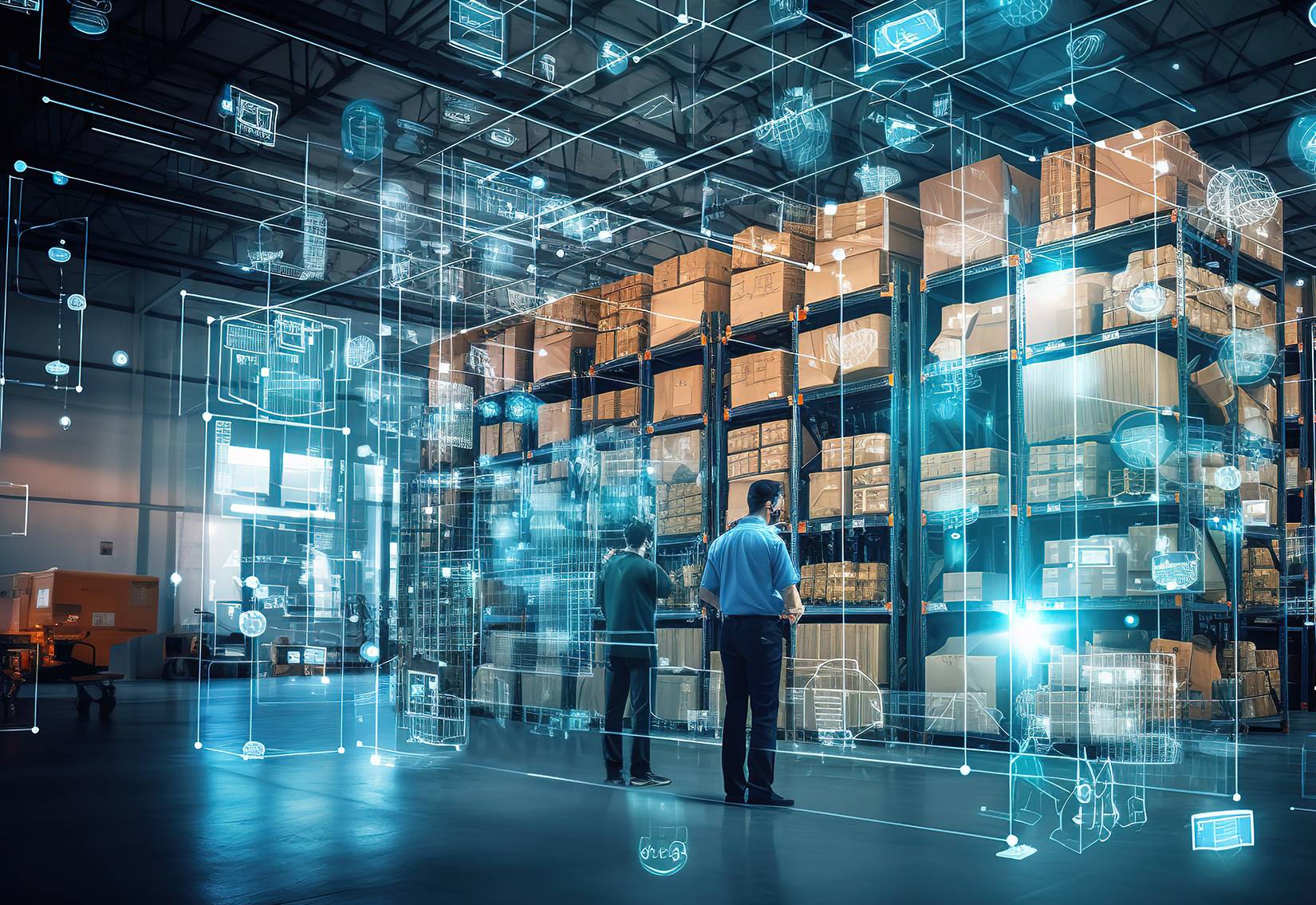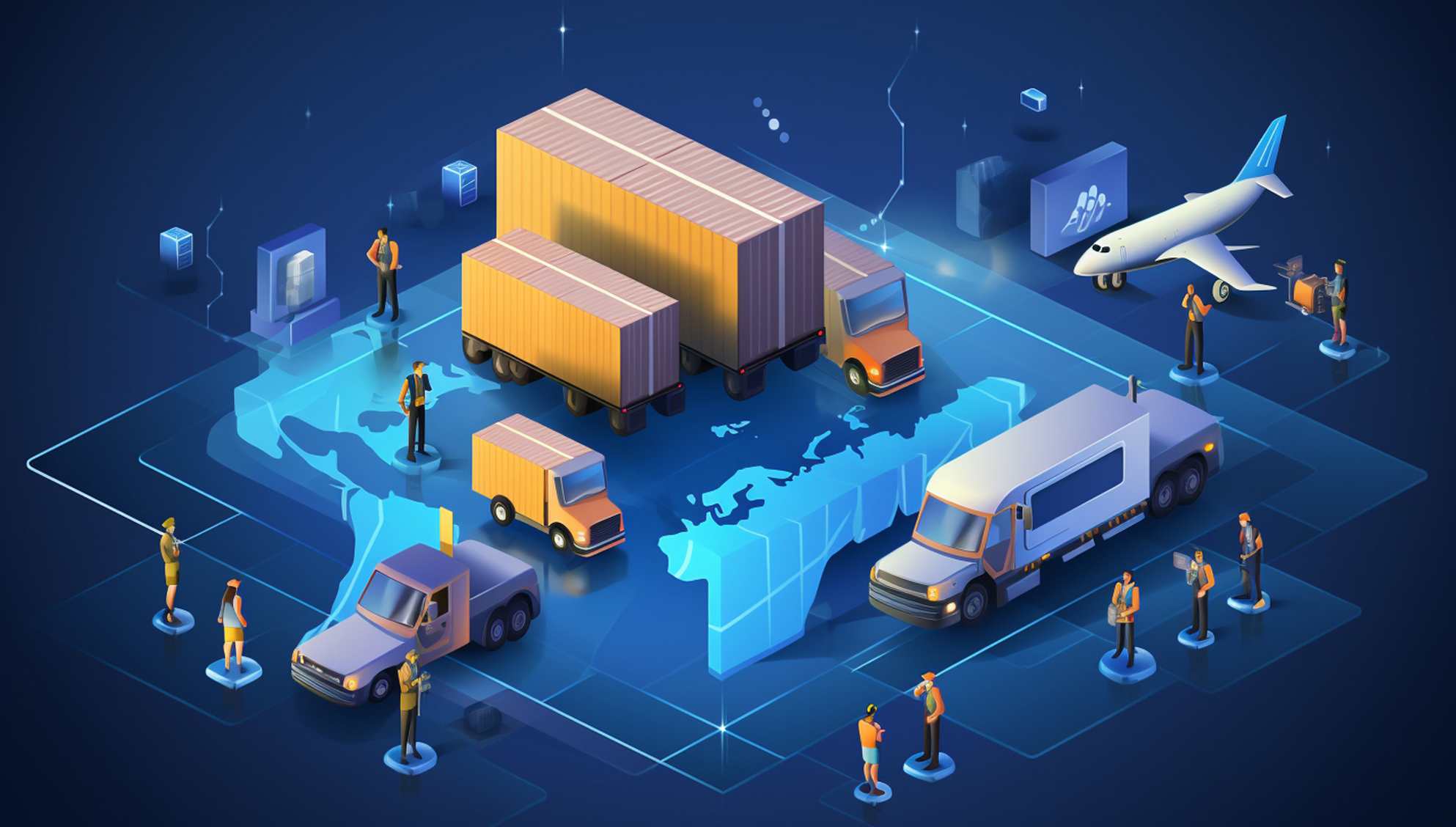
Supply Chain Management is Not Ready for AI—It Needs to Be
Artificial Intelligence (AI) is reshaping industries across the world. Yet, despite its potential supply chain management (SCM) seems unprepared to fully embrace it. The supply chain is a complex system requiring- agility, precision and data driven decisions to thrive in today’s digital landscape. However, several roadblocks exist preventing AI from seamlessly being integrated into supply chain management. This gap needs to be bridged and fast, if businesses are to stay competitive.
The Current State of Supply Chain Management
Supply chain management today is a mix of manual processes, outdated systems an data silos. While some sectors have begun adopting digital solutions, the full capabilities of AI remain largely uncapped. According to a 2023 report by McKinsey, only 12% of supply chain professionals are currently using AI-based tools, despite 61% of them recognizing the value AI brings to the table. This lack of readiness creates inefficiencies that ripple through the entire supply chain.
So, why is supply chain management lagging in AI adoption? The reasons range from a lack of skilled professionals and the high cost of implementation, to fear of the unknown. Yet, these obstacles are no longer sustainable in a global economy that demands speed, accuracy and cost efficiency.
AI’s Potential in Supply Chain Management

AI offers numerous benefits that can drastically enhance supply chain management. Machine learning algorithms can forecast demand more accurately, reducing excess inventory and minimizing stockouts. AI-driven analytics improve decision making by analyzing vast amounts of data that human capabilities cant handle in real-time. Furthermore, AI can optimize delivery routes, predict maintenance needs and even automate procurement processes.
One of the most promising applications of AI is predictive analytics. By analyzing historical data and market trends, AI can predict disruptions—such as shipping delays or supplier issues—before they happen. This allows supply chain managers to take proactive steps, mitigating risk and reducing operational bottlenecks.
Why Supply Chain Management is Not Ready
The main challenge in adopting AI is the lack of infrastructure. Many companies are still relying on outdated ERP systems, which are not compatible with AI-driven tools. These legacy systems can’t handle the volume of data AI requires to function effectively, leading to data silos and limited visibility across the supply chain.
Another barrier is the lack of skilled talent. According to Deloitte, the global demand for AI professionals in supply chain management far exceeds the supply. Many organizations are struggling to find and retain data scientists and AI specialists who can implement and manage these technologies. Without skilled professionals, businesses cannot fully leverage AI to streamline their supply chain processes.
Additionally, there’s a significant gap in understanding how AI can be integrated into supply chain workflows. Many managers still view AI as a futuristic concept rather than a current necessity, which delays adoption. AI needs to be seen as a tool that complements human decision making, rather than something that replaces it.
The Cost of Ignoring AI in Supply Chain Management

Failing to prepare for AI’s integration is not just a missed opportunity—it’s a liability. A study by Accenture shows that companies that effectively integrate AI into their supply chain can expect a 30% reduction in operational costs. On the flip side, those that lag behind will experience higher inefficiencies, increased costs, and a lack of agility in a fast-moving market.
One major consequence of delayed AI adoption is the inability to compete with companies that have already embraced digital transformation. Amazon is a prime example of an organization that has mastered the use of AI in its supply chain. By using AI for demand forecasting, inventory management, and delivery optimization, Amazon can offer same-day shipping at a cost-efficient rate—something its competitors struggle to match.
Use Case: AI-Driven Demand Forecasting
A large retail company faced frequent stockouts and overstocking, leading to customer dissatisfaction and increased storage costs. To combat this, the company integrated AI-driven demand forecasting into its supply chain management system. The AI analyzed data from previous years, accounting for seasonal changes, market trends and consumer behavior. This allowed the company to predict demand with 95% accuracy.
Within 6 months, the company saw a 20% reduction in stockouts and a 15% increase in overstocking costs. This AI-enabled solution not only improved customer satisfaction but also optimized warehouse space and reduced operational costs.
Preparing for AI
To ensure supply chain management is ready for AI, businesses must first invest in modernizing their infrastructure. This involves upgrading legacy systems, implementing cloud-based solutions, and integrating IoT (Internet of Things) devices that can collect real-time data.
Next, companies need to focus on talent acquisition and development. Investing in AI training for supply chain professionals is essential. Businesses should foster partnerships with academic institutions and invest in in-house AI talent development programs to close the skills gap.
Lastly, creating a data-driven culture is crucial for AI adoption. AI thrives on data, and the more accurate and comprehensive the data is, the more effective AI becomes. By breaking down data silos and ensuring transparency across the supply chain, companies can harness AI’s full potential.
Conclusion
Supply chain management is at a crossroads. While AI holds the promise to revolutionize the sector, most organizations are not yet ready to adopt it. From outdated infrastructure to a lack of skilled talent, the roadblocks are clear, but they are not insurmountable. Companies that begin preparing now—by modernizing their systems, upskilling their workforce, and embracing a data-first mindset—will be well-positioned to capitalize on AI’s transformative potential.
The time to act is now. Supply chain management may not be ready for AI, but it needs to be. Embracing this change could be the difference between thriving in a competitive market or being left behind. Click on the red button below to book a demo with LogiNext and transform your business with the best supply chain management software in the market.
51







@LogiNext